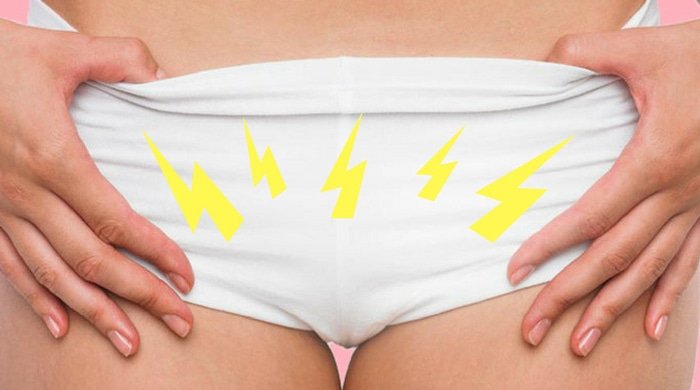A urinary tract infection (UTI) is, quite literally, a pain. It’s typically caused by E. coli bacteria, which normally lives in the colon and around the anus. Women tend to get UTIs more often because the urethra is shorter and closer to the anus than it is in men.
Because of improper wiping or sexual intercourse, this bacteria enters the urinary tract through the urethra and multiplies in the bladder, its most common target.
This can result in cystitis, an infection which brings about an inflammation of the bladder. If left untreated, it can spread to any part of your urinary system from your urethra to your kidneys and cause excessive discomfort.
So how can you find out if you have a bladder infection before it becomes more severe? If you display any of these seven symptoms, you’ve got a strong chance of having an infection.
It’s also important that you consult your doctor for a medical history and physical exam – after that, your doctor may request lab tests to help diagnose the cause of your symptoms before you can begin targeted treatment.
1. Dysuria (painful urination)
Experiencing stinging pain, discomfort or a sharp, burning sensation whilst you’re urinating? You’re suffering from dysuria. According to Dr Thomas Michels, dysuria is present at least occasionally in approximately 3% of adults older than 40 years, and it’s especially common in women. It’s a classic tell-tale sign that you may have a UTI such as cystitis or urethritis (an infection of the urethra).
2. Frequent urination
When you’ve gotta go, you gotta go. But if you find yourself going to the bathroom more than eight times a day or waking up during the night to urinate, you may need to go to a doctor.
Frequent urination can be indicative of interstitial cystitis, a UTI that causes inflammation of the bladder muscle layers and pain in the pelvic region. With this condition (which, unlike common cystitis, isn’t caused by bacteria), you’ll feel the frequent need to urinate, even if you only produce a small amount of urine.
3. Urinary urgency
This is when you feel an overwhelming need to urinate immediately – as in now. Going hand in hand with frequent urination, you might find yourself needing to rush to the restroom and the urge to do so very suddenly. Urinary urgency can also be a sign of interstitial cystitis, as it may be accompanied by pain or discomfort in your bladder or urinary tract.
4. Lower abdominal tenderness and lower back pain
If you’re feeling sensitive around your abdominal region, chances are you could be suffering from cystitis. Pressure on your pelvis, particularly around the pubic bone, can cause some serious discomfort, especially when coupled with frequent, painful urination.
Likewise with lower back pain: when a bladder infection remains untreated for a long time, it can spread from your bladder to your kidneys, causing you to experience a dull pain in your lower back and sides. That’s an indicator of pyelonephritis, or kidney infection, which is more serious than cystitis. Other signs of pyelonephritis to look out for include shaking, high fever, nausea and vomiting.
5. Blood in urine
From light-pink to dark-red or cola-coloured with clots, haematuria – or blood in the urine – is a huge tip-off that you have a bladder infection. But how does the blood get into your urine in the first place? It’s due to a leakage of red-blood cells from your kidneys or other parts of your urinary tract. UTIs and pyelonephritis are the likely culprits behind the leaks. In the case of UTIs, however, haematuria can be microscopic (meaning the blood cells are only visible through a microscope).
6. Strong-smelling urine
Pee-ew, indeed! When there’s an infection in the urinary tract, says Dr Melissa Stöppler, the urine may take on a foul-smelling odour. If your urine has a strong ammonia smell, gives off a slightly sweet scent or the stench is outright unpleasant, it’s your body’s unsubtle way of alerting you to a possible UTI.
7. Cloudy urine
Under normal circumstances, urine is clear and has a light-yellow colour. But when you have an infection anywhere in the urinary tract, it can cause pus (containing dead skin cells, bacteria and white blood cells) to appear in your urine, giving it a cloudy or murky appearance. So if your urine’s yellow, you can mellow. But if it’s cloudy… not so much.
By: Nereesha Patel
Fuente: www.health24.com
